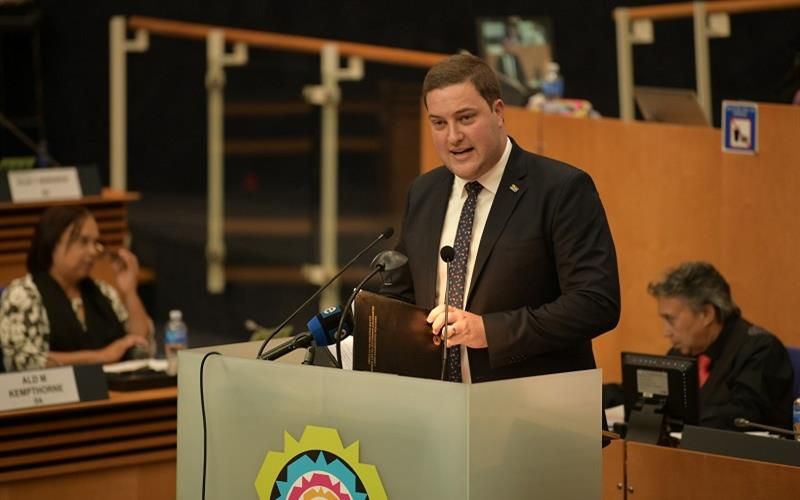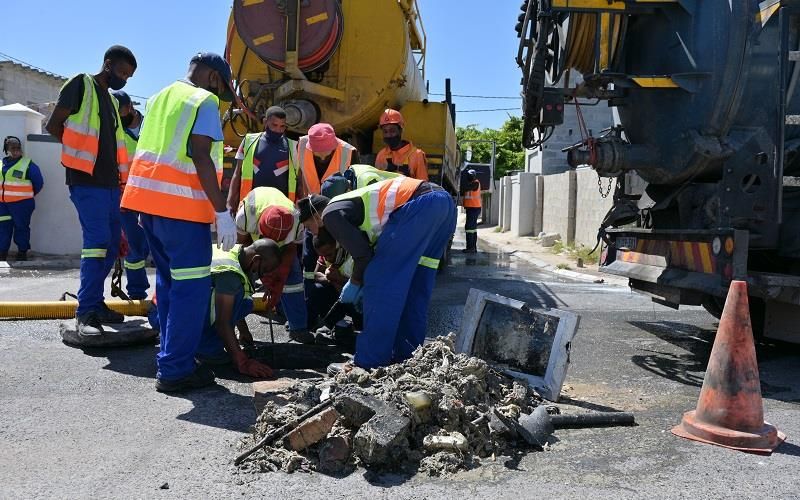Cape Town, South Africa, will be investing R11bn in infrastructure, making it the largest infrastructure budget among all of the country’s metros. This announcement was made by Mayor Geordin Hill-Lewis during a City Council meeting. The budget is part of the City’s plan to build a “City of Hope” for all its residents, regardless of their background or where they live.
Cape Town’s Budget Compared to Other Metros
In comparison to other metros, Cape Town’s infrastructure budget is significantly larger. It is 35.2% larger than eThekwini’s (R8.1bn), the next biggest budget, and 59.7% larger than Johannesburg’s (R6.9bn), the third-largest budget. On a per capita basis, Cape Town’s infrastructure spending over the next three years will be 145% higher than Johannesburg – the most populous city in South Africa.
Job Creation
The budget is expected to create approximately 135,000 jobs in the city over the next three years. Mayor Hill-Lewis notes that Cape Town’s good governance enables the city to make unrivaled investments in the future while strengthening the safety net for vulnerable residents.
Investment in Lower-Income Households
Approximately 73% of Cape Town’s R11bn capital budget goes to critical infrastructure that benefits lower-income households, informal settlements, and poorer communities in the city. There is a 226% increase in water and sanitation spending over three years, with over R750 million going to Cape Flats and Philippi main sewer upgrades. Additionally, there is a 330% increase in capital budgets for sewer pump station upgrades, which overwhelmingly benefit poorer communities.
Other Investments
Other significant investments benefitting lower-income households include the major MyCiti south-east expansion to Khayelitsha and Mitchells Plain, clinics, libraries, sports facilities, community hubs, human settlement projects, new waste trucks and drop-off facilities, precinct upgrades to under-performing CBDs in lower-income areas, informal settlement electrifications, and street-lighting upgrades and informal trading infrastructure upgrades.
Measures to Support Residents
Cape Town has also introduced measures to support its residents, including a 15kl free basic water package, 60 units of free basic electricity (<250kWh usage), a 100% rates rebate for properties valued at R450,000 or less, and a 100% rates rebate for households with an income threshold of R7,500. The city is the only metro to offer the first R450,000 of property value rates-free for all properties under R5m in value and to raise the pensioners’ income qualifying limit to R22,000 a month to ensure more people get more rates rebates.
Lowest Rates for Commercial and Residential Properties
Cape Town also has the lowest rates for commercial and residential properties among South African metros in 2023/24. Commercial property rates are 35% lower than Johannesburg (0.014742 vs 0.022689 c/R) and 54.6% lower than eThekwini’s (0.032473 c/R). For residential property rates, Cape Town’s 0.006273 is 31% lower than Johannesburg’s (0.009076 c/R) and 51% lower than eThekwini’s (0.012890 c/R).
Building a More Inclusive and Caring City
Mayor Hill-Lewis emphasizes that Cape Town is delivering and caring for the poor, building hope for the future, and doing it while ensuring fairness and respect for ratepayers. Cape Town aims to build a more inclusive and caring city, recognizing that there are still many people living in poverty in South Africa and in Cape Town.












